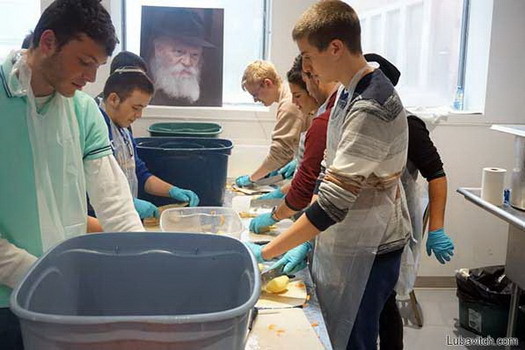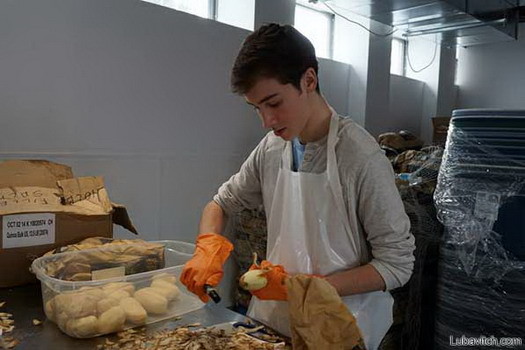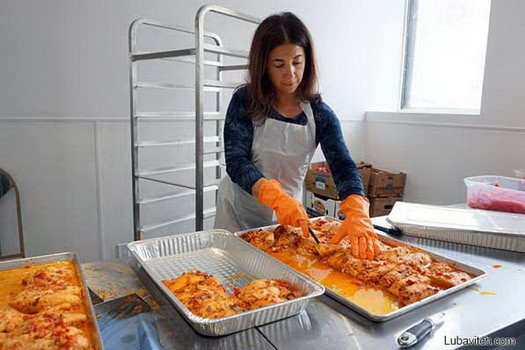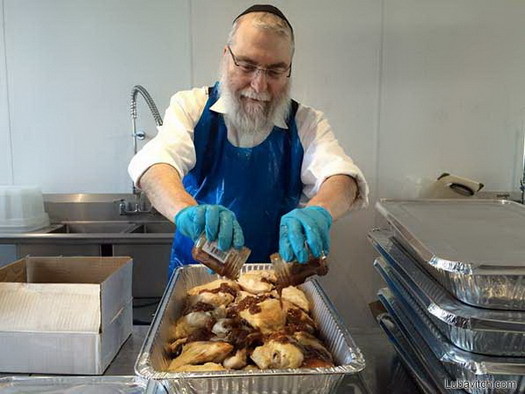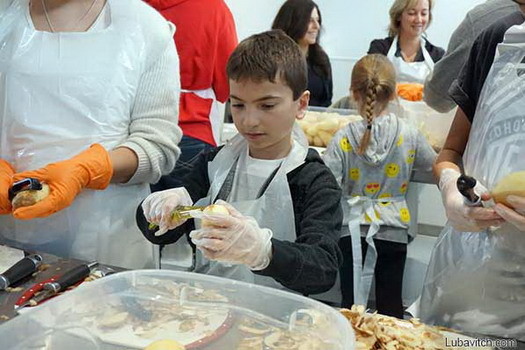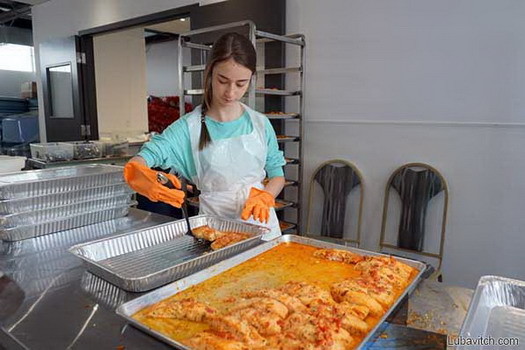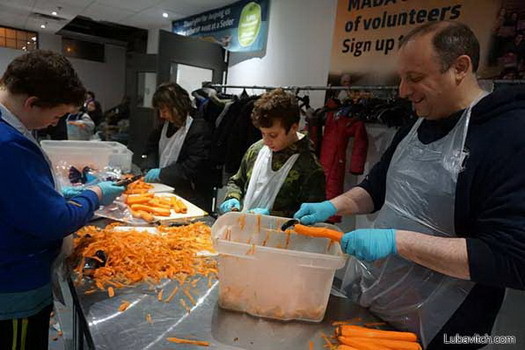
In Montreal, Communal Seders Not Just for Needy
Sarah Yevzeroff, well into her 80s, would have celebrated last Passover by herself in her Montreal apartment. “My husband died and I have only one son. When you have no money, you cannot celebrate, you eat what there is and that’s it,” she says.
Thanks to Mada that was not the case.
That’s because Rabbi Chaim Shlomo Cohen, the director of Chabad’s Mada Community Center in Montreal, QC, asked himself: “How will this year’s Passover seder be different than last year’s?”
It’s a question he’s asking himself again this year, working harder to bring yet more Jews who have no one to celebrate with, to Mada’s seders. In a community where people generally invite family and friends to celebrate the seder, the idea of a communal seder is not something locals had really considered, until Mada identified this Jewish demographic.
“We are all family” became Mada Center’s motto, and is the inspiration for its activities, especially around holiday times when loneliness can be painfully accentuated for those with no immediate family.
According to a 2011 National Household Survey Analysis by the Montreal Jewish Federation, there are 18,130 Jews living below the poverty line in the Montreal, accounting for 20% of the total Jewish population. The needy, say Federation reports, consist mostly of the elderly, immigrants and single parent households.
With a dedicated group of 500 volunteers, Cohen and volunteers have been working to prepare 5,000 Passover meals, focusing on the seders, to be conducted in ten locations across Montreal. “We made a real effort that the meals should look and taste as they would if you are at a large seder in your own home,” he says.
At Mada’s warehouse, filled with hundreds of pounds of Matzah, 15,000 pounds of potatoes, and thousands of bottles of wine, volunteers work in shifts peeling beets, filling pans with thousands of portions of salmon and other foods for the seder.
Rabbi Pesach Sperlin, Chabad representative to West Montreal, explains that because there are so many in the city, like Sarah Yezeroff, “who do not have family, are elderly and lonely, and would not have a way to celebrate the seder were it not for Mada.” Sperlin will be hosting one of the Mada seders.
The Mada seders, says Sarah Yevzeroff’s son Jack, “brings the community more close together and makes everyone happier.”
The ogranization’s coordinators serve daily hundreds of meals at their central location, and deliver weekly Shabbat provisions to the needy. Different, however, is the Passover seder, which Mada has opened to the entire community, making it an event at which people of all socioeconomic levels participate.
“This is an open seder; the tables are set in style, the food is high quality, there is a homey atmosphere and everyone’s welcome,” says Miriam Sebbag, Development Officer at Mada. In the weeks before Passover, Mada runs ads in local Jewish newspapers inviting readers to join, making the needy more comfortable coming to these seders, where they celebrate with a mix of community members.
Like the preparations for the seder, people from the Jewish community volunteer at each location. At Mada’s largest seder at the Jewish Federation in the Côte-des-Neiges neighborhood, 75 volunteers will be on hand.
The seders are funded privately.


